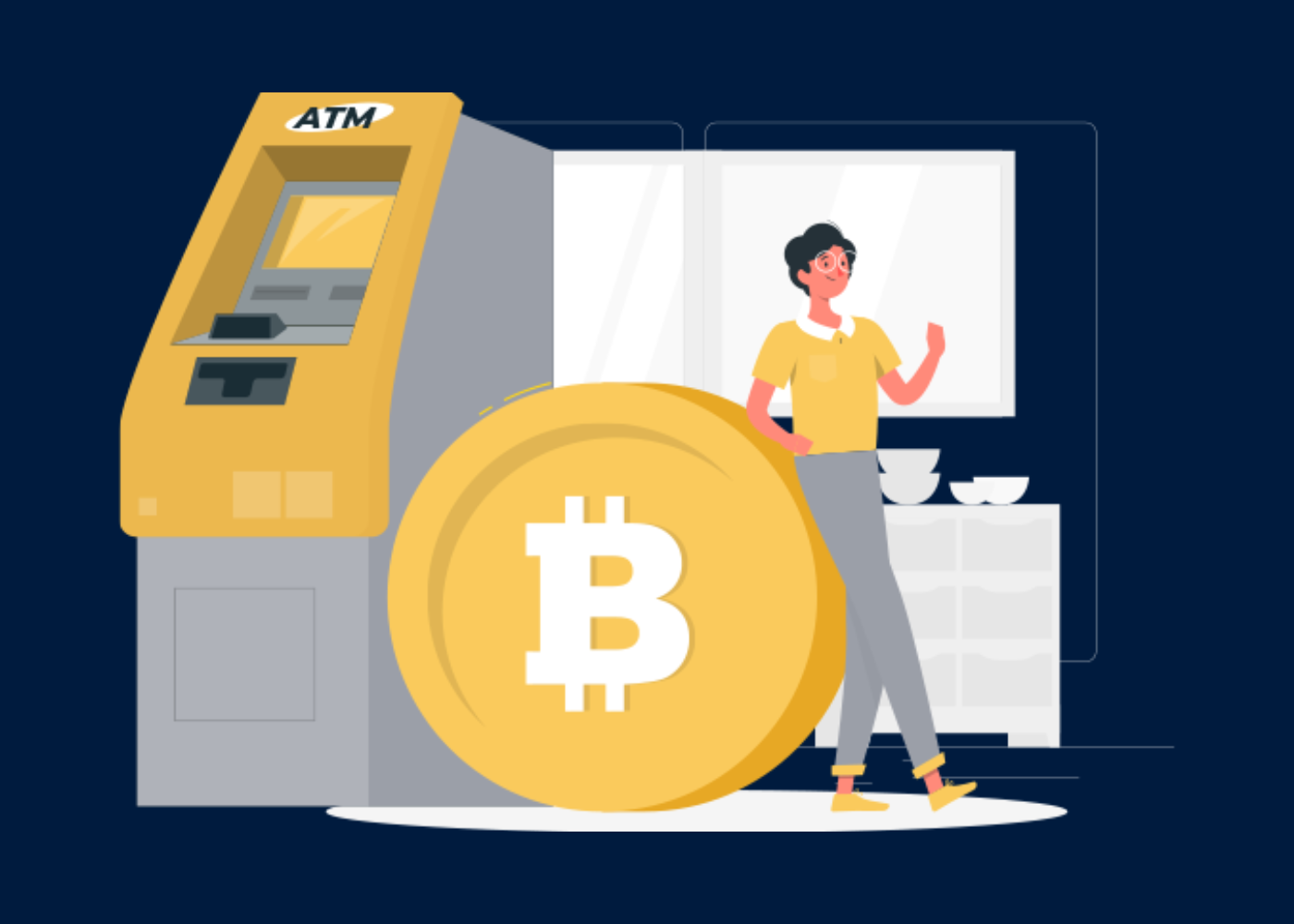In this article, we’ll talk more about how social media is influencing Cryptocurrencies in a bit. But first, how often do you pick up your phone to check the notifications that have popped up on your screen? How much time do you spend looking at what your friends are up to? Or trending posts on your favorite subreddits, or silly TikTok videos?
Probably far too much, and you wouldn’t be the only one. Clearly, it takes up too much of our time and has led to whole new levels of chronic procrastination. We also have to acknowledge that social media has become extremely influential.
May it be in politics, social activism, commerce, our professional lives, and society in general. With that in mind, it’s no wonder social media has also started to have a big impact on Cryptocurrencies.
What Are Cryptocurrencies?
Cryptocurrencies are digital-based currencies that let you buy goods and services, or trade them for profit. But, they use an online ledger with strong Cryptography to secure online transactions. Whereas, the main interest in these unregulated currencies is to trade for profit.
Oftentimes, speculators, at times, drive their prices skyward. The most popular form of Cryptocurrency is Bitcoin. Not to mention, it has had volatile price moves this year. Whereby, it reached nearly $65,000 in April before losing nearly half its value in May. In recent weeks, the price of bitcoin was back in the $45,000 range.
That said, you can check the current price to buy Bitcoin for more details. Forthwith, many companies have issued their own currencies too, often called tokens. More specifically, these currencies can be traded for either goods or service solutions that the company provides. Think of them as you would arcade tokens or casino chips.
As such, you’ll need to exchange real currency for Cryptocurrency to access the good or service. Eventually, Cryptocurrencies work using a technology called a blockchain. Blockchain is a decentralized technology spread across many computers that manage and records transactions. Part of the appeal of this technology is its security.
The First Discussions About Cryptocurrencies
Before Myspace and Facebook conquered the social media market, the most popular gathering places on the internet were online forums. Forums are messageboard-type websites where registered users can talk anonymously and publicly about the topics that interest them.
One such forum was bitcointalk.org, created by Satoshi Nakamoto, the mysterious person (or collective) behind Bitcoin. This public forum has followed the project since its inception. It was the go-to place for discussing the project and even making some of the first transactions on the Bitcoin network.
The famous 10,000 BTC transaction for two Papa John’s pizzas was negotiated over this forum; that quantity of BTC is worth $471 million at the time of writing this article. Long gone are the days when Bitcoin was a barely known fad worth just a few cents apiece. Nowadays, the underlying blockchain technology is implemented by companies such as IBM, Visa, Pfizer, Shell, etc.
The Relationship Between Cryptocurrency & Social Media
Today, most of us spend a lot of time on social media websites like Facebook, Twitter, Instagram, YouTube, and Reddit. With 50% of Americans getting their news through social media, it’s impossible to dismiss the influence of this relatively new phenomenon.
At this point, we need to examine the basic economic principle of supply and demand. With high demand and low supply, the prices of cryptocurrencies can skyrocket. On the flip side, negative news related to Cryptocurrencies can cause a panic sell reaction. Whilst, flooding the market with more sell orders than demands to buy, causing the price to drop rapidly and significantly.
Learn More: Digital Currencies and the future of the Monetary System
Social media not only follows but sometimes even causes market fluctuations by publishing trending news. Notably, together with other media outlets, it can cause the price of Cryptocurrencies to fluctuate, for better or for worse.
Bearing in mind, trending news about a large digital currency exchange hack can cause a significant drop in digital currency value. Whether those news stories are about an Ethereum update, the rising price of BCH, or a hack of a cryptocurrency exchange, they can influence prices significantly.
Will Banks Survive the Transition to a New Monetary System?
Unlike traditional stock exchanges, Cryptocurrency markets are constantly open. And, more so, they react in real-time to any news that comes through our social media feeds. Equally, no matter how much you know about Central Bank Digital Currencies (CBDC), chances are you’ve heard something about their most serious threats too.
In that case, my biggest question is, will banks survive the transition to a new monetary system? Well, most eagle-eyed beachcombers may recognize the round white shells etched with a five-petal flower. Notwithstanding, these erstwhile homes of sea urchins resemble a silver dollar.
Thus, earning them the nickname “sand dollars.” And there’s even a myth that they are the money of mermaids or the long-lost city of Atlantis. They pile up on the shores of the 700 islands in the Bahamas, so its central bank picked the sand dollar as its logo.
In October 2020, when the Bahamas launched the world’s first central-bank digital currency (CBDC), the authorities chose to adorn the app with the familiar floral pattern and call it the sand dollar. Of course, fears that CBDCs could cause financial instability and increase surveillance are misplaced, says the CoinDesk columnist.
Blockchain in the Information Age
The combination of privacy and accountability that blockchain provides offers benefits for tracing just about anything. Simply, because Cryptocurrency operates by adding blocks to the chain — the more data, the more currency there is to spread around. Every bit of social media is about posting data, adding more and more value overall. When content can earn a user money, it creates more incentive to post more content.
Cryptocurrency Price Roller Coaster
To say the Crypto market is volatile is an understatement. With such drama always around the corner, it’s hard to deny the emotional reactions that social media can cause among investors and traders. The most extreme examples may lead people to invest or sell without thinking critically.
FOMO – Fear of Missing Out
Fear of missing out, or FOMO as it’s commonly known, is not exclusive to cryptocurrency investments. However, the persistent feeling that you might miss a perfect opportunity to invest in the next Bitcoin or Ethereum is real and can be stressful. FOMO might be the reason why you invest in a dodgy coin, or it could stop you from selling an asset that has already gone up in value.
FUD – Fear, Uncertainty, and Doubt
Fear, uncertainty, and doubt are a common mix of emotions that causes investors to panic sell, driving the price of the market down. FUD caused by negative news shared on social media can cause dramatic and damaging panic sales.
Looking Ahead | The Downside
Cryptocurrency is not without its hiccups. It’s like investing in real estate or the stock market. Whereby, there are the usual risks associated with such activity. But, not without the added dangers of Internet activity. For instance, losing Cryptocurrency can be as easy as forgetting a password.
On the other hand, hacks can wreak havoc on the value of a currency, or destroy it altogether. But, it’s not in a position to replace fiat currency (money issued by a region or country). However, broadening its use is making it easier for users to do business online and over national borders.
Significant Social Media Platforms for the Crypto Community
Back in the early days of social media, users who posted viral content saw very little in return. The platforms gained revenue but the users, who were creating the content, found themselves not benefiting from their own creativity. The cryptocurrency was one of the ways developers saw to alleviate this trend and give creators power over their own content.
They do this using a technique called “blockchain,” which provides a way to encrypt transactions in blocks so that each one is accounted for. Generally, social media and message boards are still crucial for growing the cryptocurrency industry. With rising interest, companies are more inclined to invest in this kind of grass-roots marketing.
And as a result, leading to increased adoption, more jobs, and further technological development. As information about cryptocurrencies is becoming widely available, more people are learning about blockchain, investing, and driving acceptance of the technology.
Most cryptocurrency developers and projects are active within their Reddit communities and post regular updates. This platform is also a go-to place for journalists looking to write news articles, as they know they can find reliable sources.
GitHub
The importance of GitHub for crypto developers is easy to see, as it does far more than just providing a Git repository service. It also creates an open-source-oriented community of programmers who collaborate on projects, on top of the site’s many social media features. Simply put, it’s a platform for developers, just like YouTube is for video content creators.
Twitter has grown into a central place for companies to communicate with their customers by providing news, updates on issues, service announcements, and even going so far as to announce job openings. The social platform has proven a great way for brands to build trust and engage with their community.
The Cryptocurrency industry is no exception, as many exchanges use it to publish updates on their services and to offer discounts or promotions. Furthermore, many public figures from the industry are on Twitter and provide valuable insights. Following individuals like Vitalik Buterin, Andreas M. Antonopoulos, and Gavin Wood can be quite informative, as they post regularly on Twitter.
The New Kind of Social Media — Cryptocurrencies-Based Platforms
Technically, social media’s main purpose is to allow users to connect with one another, hoping for that viral content that gets millions of hits the world over. Using Instagram, Reddit, or Facebook, users talk, and news travels. Values of cryptocurrency have been known to fluctuate as a result of online discussions about platforms and currencies.
This goes both ways: good news raises value, and bad news lowers it. News of a hack can cause the value of a cryptocurrency to plummet, even if the breach was inconsequential. Some projects are crossing the boundaries and creating platforms inspired by social media and blockchain technology.
New tech could potentially change the current ecosystem by creating decentralized platforms that could tackle some of the main issues of popular social media websites. Such community-run projects wouldn’t have a central point of censorship; instead, the entire network would participate in content management.
Protecting your online privacy is another strong point for the creation of such social media platforms. This is especially true considering that social media companies are known for gathering and selling user data. Users of such platforms would be more motivated to create quality content, as the platforms (or their users) could reward participants with their native cryptocurrency.
Steemit: Crypto-Powered and User-Operated Social Network
Projects like Steemit are a perfect example of how merit-based social platforms that run on blockchain technology could work. This platform — which is visually similar to Reddit — allows for similar navigation on the basis of communities, users, or search terms.
The critical difference is that each post uses a blog-type format that users can upvote, thereby allocating funds to content creators. Each post shows how much that user has earned by posting their content. Furthermore, users are rewarded for engagement, including commenting, voting, or interacting with the content.
Other Interesting Projects
Many other projects are getting launched on the Ethereum Network too — the most interesting ones being Sapien and Indorse. Sapien is building a platform that will provide an alternative to Facebook and Google by developing a trustworthy social news platform.
Indorse is creating its take on LinkedIn while implementing mechanisms for validating the skills of its users. Overall, linking it to content posted on social media provides opportunities for content creators to benefit from the content they produce.
Closing Thoughts,
While there are already plenty of projects that are creating noteworthy decentralized social media platforms, the technology is still in its early days. As the community continues to grow, we’ll thankfully start to move away from panicked reactions.
Some of which are driven by social media posts, and many of which are motivated by nothing other than the monetary gain of the poster. Who knows — maybe there’s a much better version of Facebook or a smarter version of YouTube waiting just around the corner!
Cryptocurrencies are the financial metaphor for the bridge the Internet provides our world. It’s also more accessible to everyday users. And as such, many enterprising developers will be looking for ways to integrate it into their platforms.
More Related Topics:
- Blockchain Technology | How It Helps Mine Cryptocurrency
- What Is Metaverse? The Next Cloud Technology Outlook
- Blockstack Browser | The #1 Stacking Tool to Mine Bitcoins
- How to Mine Bitcoins for Free | Tools to Use & Trade with
- CryptoTab Browser | Earn Free Bitcoins While Web Surfing!
Finally, as the economy moves into the information age — and digital content gains higher value — Cryptocurrency will continue to grow in prominence. Besides, the expansion of social media makes all of this inevitable. In addition, it’s also bringing users together to share content that generates its value.
So, with that in mind, what’s your take on How social media affect Cryptocurrency? Please, let us know more about your opinion thoughts, suggestions, and contributions. Or even other related questions in our comments section below.




